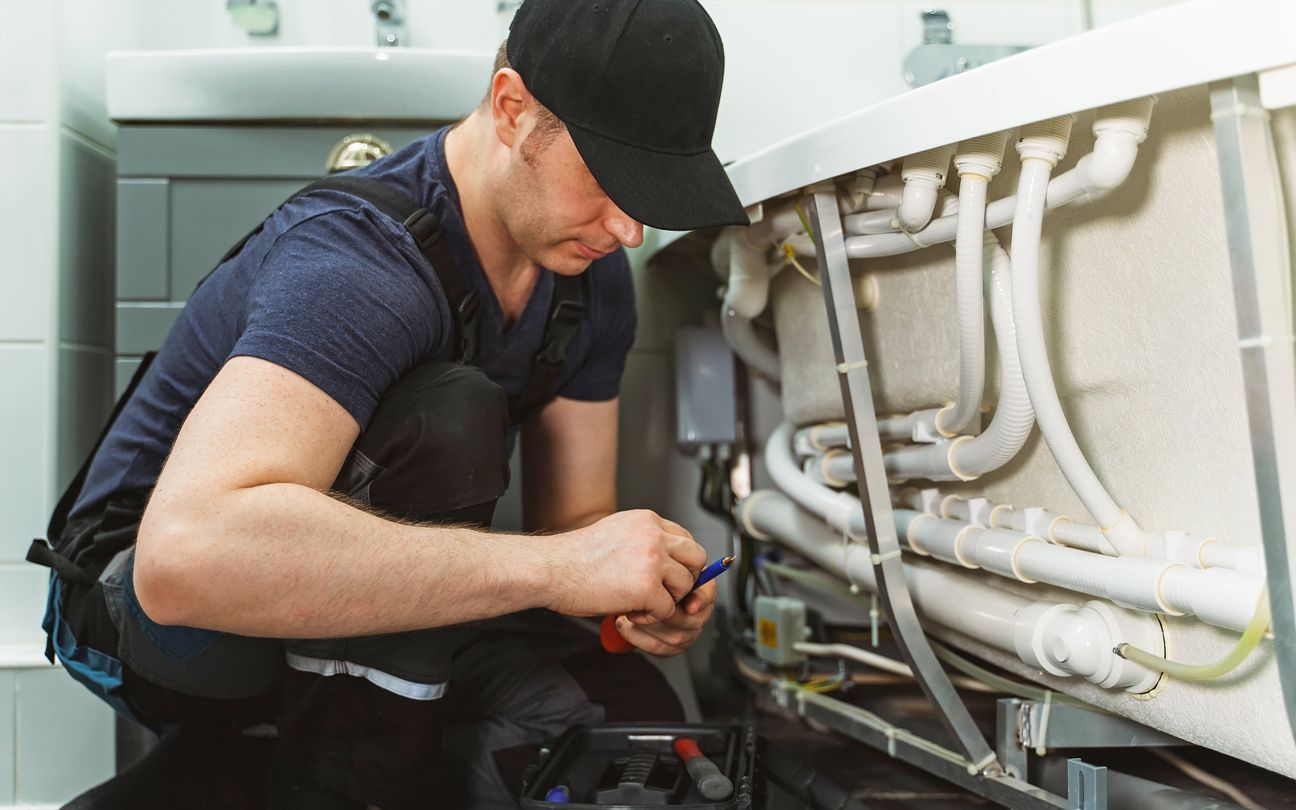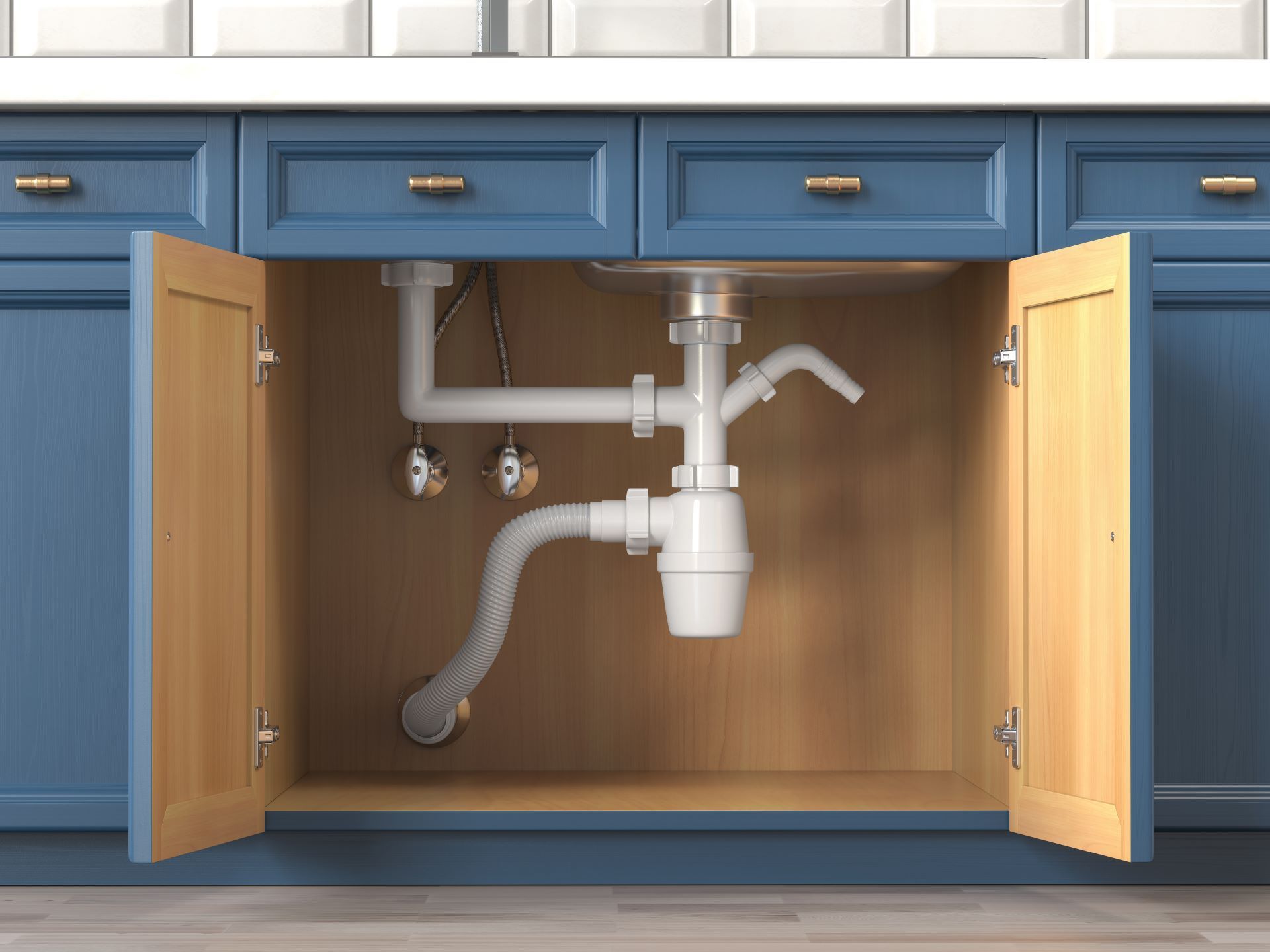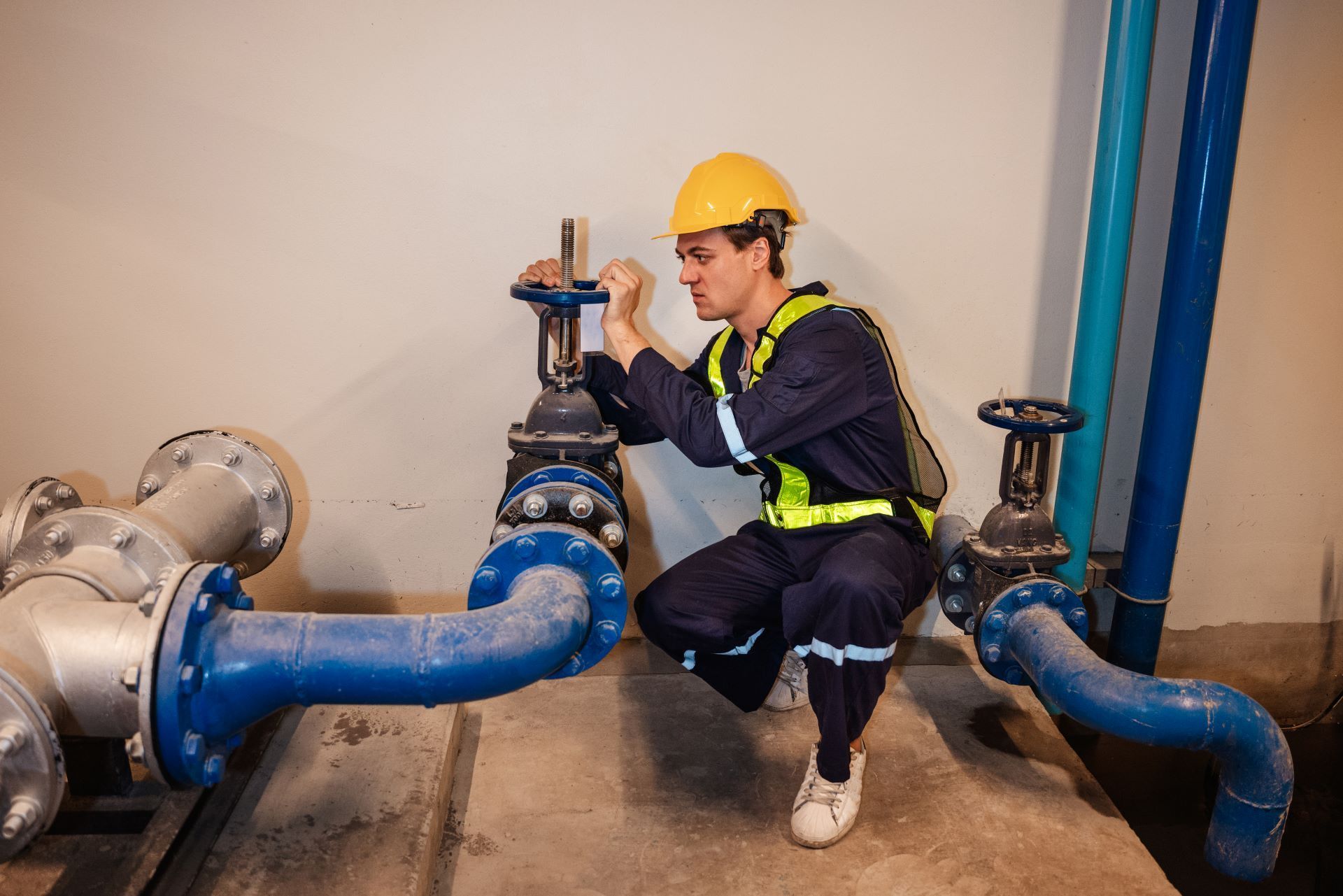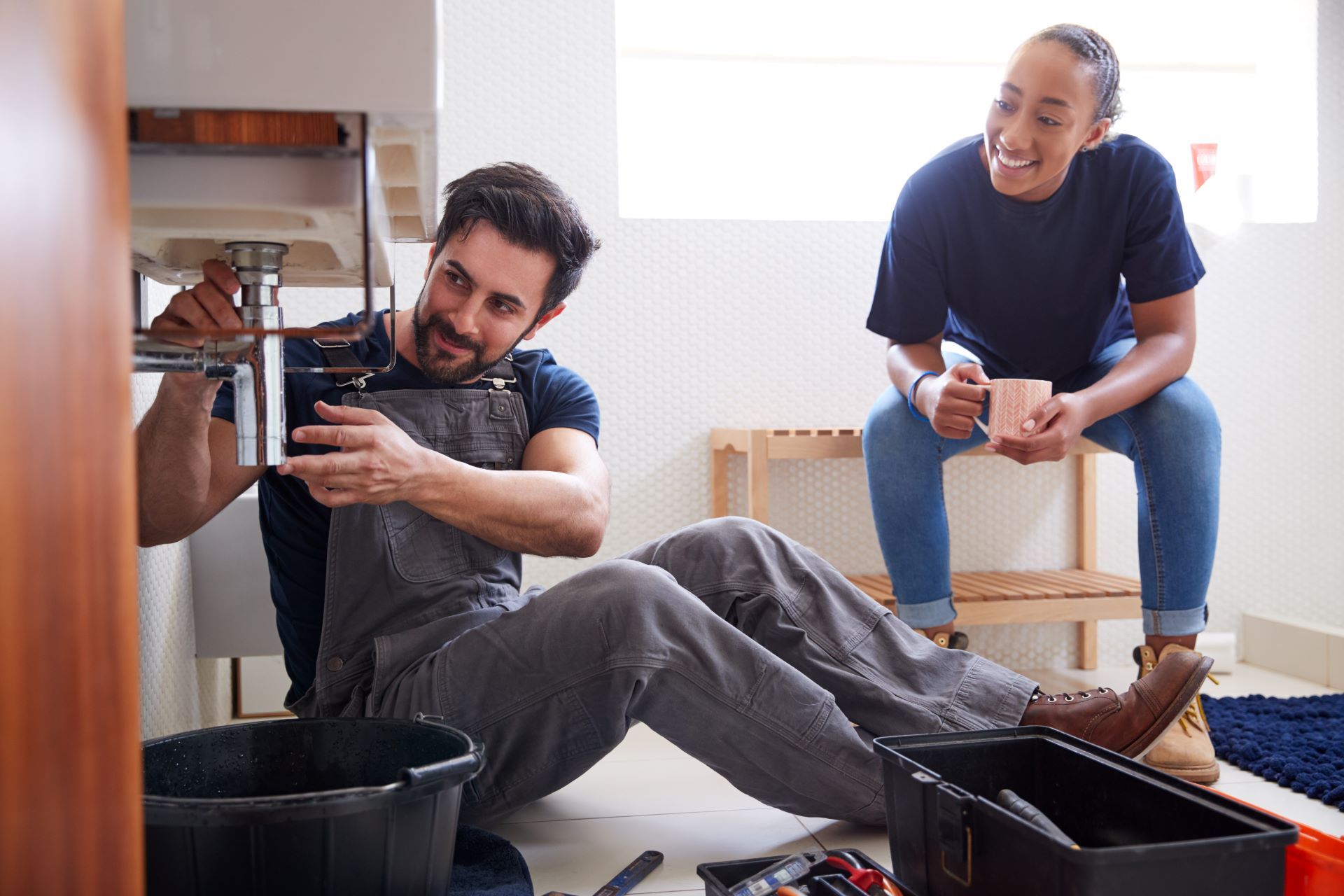Join the Lutz Loyalty Club and start saving today!
Common Winter Plumbing Problems & Tips to Avoid Them
Jan 30, 2023
At Lutz Plumbing, LLC, we're here to help you identify and prevent common winter plumbing problems so that you can enjoy a worry-free winter. Keep reading to learn more about what to look for and remember these winter plumbing tips to keep your plumbing running smoothly in the winter months.

Winter Plumbing Problems
Burst Pipes
Winter weather can cause pipes to freeze and eventually burst. This is because water expands when it freezes and puts a lot of pressure on your pipes. If the pressure gets too high, it can cause the pipes to rupture or burst. Burst pipes can create a massive amount of water damage and can be very costly to repair. Therefore, it's essential to be proactive and take steps to prevent this. Here are some tips:- Keep the temperature in your home above freezing.
- Insulate exposed pipes to protect them from cold air.
- Make sure all of your outside faucets are turned off and disconnected from your hose.
- Keep an eye on areas prone to freezing, such as basements, attics, and crawl spaces.
If you experience a burst pipe, immediately turn off the main water supply line and contact a licensed plumber.
Frozen Pipes
Frozen pipes are one of the most common plumbing issues in winter. When temperatures drop below freezing, water in your pipes can freeze, leading to a blocked pipe and a potential burst. Frozen pipes disrupt water flow and can be a significant source of costly damage.If you suspect a pipe is frozen, here are some steps you should take:
- Shut off the main water supply to the house.
- Open up the faucets connected to the frozen pipe and let any water that has been trapped thaw out.
- If you can reach it, wrap insulation around the pipe to help heat it.
- Apply heat to the frozen area using an electric heating pad or space heater, but never use a blowtorch, kerosene, or propane heater, as this could be dangerous.
It is essential to contact a professional plumber if you suspect your pipes have frozen.
Backed Up Sewer Lines
Water in the sewer line can freeze and block wastewater flow when temperatures drop. This can lead to backups that can cause severe damage to your home. In the winter, it's essential to watch for signs of a backed-up sewer line, such as slow-draining sinks, toilets that take a long time to flush, and an overflow of wastewater in your yard or basement.To prevent a backed-up sewer line, clean out any debris from drains and gutters. If there is an area near your home where water pools or collects, fix it before temperatures drop too low. You should also inspect the sewer line for any clogs or breaks and get them repaired as soon as possible. If you have a septic system, check the tank and get it pumped if needed.
Clogged Drains
Clogged drains can be a nuisance, especially during the winter when we're already dealing with cold temperatures and freezing pipes. Unfortunately, clogged drains are a common problem that an accumulation of debris, such as hair, grease, food particles, and soap residue, can cause.Fortunately, there are steps you can take to prevent clogged drains:
- Always use filters in your sinks and tubs to catch food particles and debris.
- Never pour grease down the drain.
- Use a drain cleaning solution regularly to keep your gutters clear.
If you find yourself with a clogged drain, you can try some easy DIY solutions before calling a plumber. First, use a plunger or a bent wire hanger to unclog the drain. If that doesn't work, you can pour boiling water, vinegar, and baking soda down the drain to help break up the debris and allow it to pass through.
Leaking Faucets
During the winter months, it's common for your faucets and plumbing fixtures to develop leaks or cause other problems. This is due to temperature and air pressure changes which can cause components in your plumbing system to expand or contract. If you notice any leaking or drips coming from your faucet, it's best to call a plumber immediately before the problem worsens. They can diagnose the issue quickly and provide an effective solution. Additionally, they can suggest additional winter plumbing tips that can help prevent future problems from occurring. Remember, if you take the time to keep up with your plumbing during the winter months, you can avoid a lot of headaches and costly repairs in the long run.Use These Winter Plumbing Tips & Schedule Your Service Today
Our experts can diagnose any problems with your plumbing and take the necessary steps to ensure everything is running smoothly. We can also provide preventive measures that will help protect your system from any winter damage.
At Lutz Plumbing, LLC, we understand how important it is to have reliable plumbing service. That is why we strive to provide our customers with the highest quality of service. Our plumbers have the skills and experience necessary to keep your plumbing system running smoothly in the coldest months.
We offer flexible scheduling options to receive timely and reliable service when you need it most. So contact us today to schedule an appointment and ensure your plumbing is ready for the winter season.
Share Post
Download the Lutz Plumbing App!
Schedule a Service
Membership Access
Access to Exclusive Offers
Manage Financing
... And More!
Free Safety Inspection
Free Extended Warranties
15% Discount
Free Priority Service
Member Only Specials
No Extra Charges for After Hour Service
Hundreds of Five-Star Reviews
Read why happy customers choose us over and over again.
When you have a
plumbing problem in the Kansas City area, you can rely on Lutz Plumbing to be have 24 hour response time. We are a local, family-owned business who shows up on time and ready to tackle your plumbing problems head on.
From leak detection to water heater service and installation, Lutz Plumbing gives you prompt, efficient and high quality plumbing services from knowledgeable technicians.
Read more about what hundreds of customers like you are saying about our five-star service, or call us today at
913-888-9500 and tell us about your problem today.

Dan
"We called at 6:30 on Sunday evening and Brent was at our door at 7:25 and was extremely professional and completed the work in a clean manner. We will be called Lutz Plumbing moving forward!"
Read All Reviews →
John K.
"The employees are always on time and very knowledgeable about the work to be completed. Very impressed, as always."
Read All Reviews →
Amanda
"I called 27 different plumbers at 11 at night, no one could come or they didn't answer. Brent called back 3 minutes later and came right out and fixed it right away. The price was less than other's day prices, so glad you are in business. I will always use Lutz plumbing from now on."
Read All Reviews →
Articles for Homeowners

Find Your Service Location
List of Services
-
Belton, MOBelton, MO
-
Blue Springs, MOBlue Springs, MO
-
Bonner Springs, KSBonner Springs, KS
-
De Soto, KSDe Soto, KS
-
Eudora, KSEudora, KS
-
Excelsior Springs, MOExcelsior Springs, MO
-
Gardner, KSGardner, KS
-
Gladstone, MOGladstone, MO
-
Grain Valley, MOGrain Valley, MO
-
Grandview, MOGrandview, MO
-
Independence, MOIndependence, MO
-
Kansas City, KSKansas City, KS
-
Kansas City, MOKansas City, MO
-
Lansing, KSLansing, KS
-
Lawrence, KSLawrence, KS
-
Leavenworth, KSLeavenworth, KS
-
Leawood, KSLeawood, KS
-
Lee's Summit, MOLee's Summit, MO
-
Lenexa, KSLenexa, KS
-
Liberty, MOLiberty, MO
-
Linwood, KSLinwood, KS
-
Merriam, KSMerriam, KS
-
Mission, KSMission, KS
-
North Kansas City, MONorth Kansas City, MO
-
Olathe, KSOlathe, KS
-
Overland Park, KSOverland Park, KS
-
Parkville, MOParkville, MO
-
Platte City, MOPlatte City, MO
-
Prairie Village, KSPrairie Village, KS
-
Raymore, MORaymore, MO
-
Roeland Park, KSRoeland Park, KS
-
Shawnee, KSShawnee, KS
-
Spring Hill, KSSpring Hill, KS
-
Tiffany Springs, MOTiffany Springs, MO
Local Office
21961 W 83rd St
Lenexa, KS 66227
Contact
Office Hours
Monday - Friday: 8a - 6p
Saturday: 8a - 4p
24 Hour Response
License
#20202383
Financing














